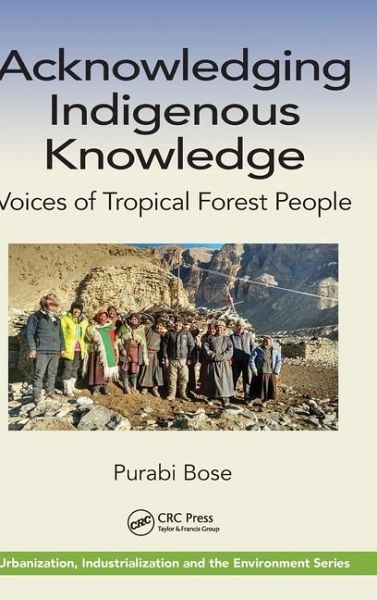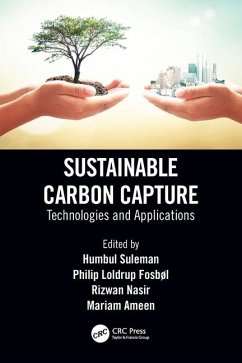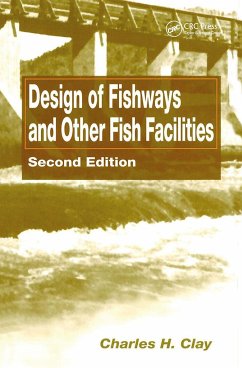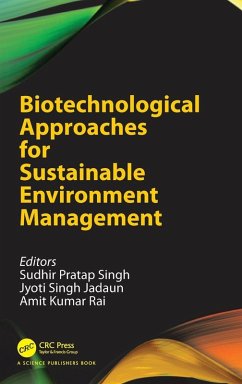Versandkostenfrei!
Versandfertig in 1-2 Wochen
Weitere Ausgaben:

PAYBACK Punkte
78 °P sammeln!




This book explores how the landscapes in indigenous territories are rapidly changing due to increased global industrial demand. This deforestation and urbanization has isolated the Indigenous People from practising 'traditional ways of life.'
Purabi Bose, a citizen of India with Santhal tribe/Adivasi ancestry, is a social anthropologist and environmental scientist with a research focus on forest tenure and land rights of indigenous peoples, climate adaptation, and food security in Asia, East Africa, and Latin America. Currently, she is an Associate Professor (Docent) and Senior Lecturer of Forest Policy at the Swedish University of Agricultural Sciences (SLU), Sweden. Her professional affiliations have spanned NGOs, philanthropic, international research, academic, and think tanks with a focus on rural and tribal development, natural resource governance, and social inclusion. She is passionate about simplifying science for better communications and helps in capacity building, teaching, partnership, policy analysis, research, and publications. Purabi holds a Ph.D. from Wageningen University and has held numerous fellowships, including those at the University of California, Berkeley, the Swedish University of Agricultural Sciences, the University of Copenhagen, and the Smithsonian Institute. She presented her research work at over 100 international conferences. She has published her research in peer¿reviewed journals and in popular science media. As a filmmaker, she is a producer and director of independent films on forests, mountains, land, and the way of living of indigenous peoples. This is done under her self¿funded initiative, Landing Together. Further details about films and protagonists at www.landingtogether.weebly.com Her pröbono responsibilities with the International Union of Forest Research Organization (IUFRO) include as a Voting Board Member, Coordinator of Division 6 on Social Aspects of Forests and Forestry, and a member of the Congress Scientific Committee for IUFRO Congress Stockholm, 2024. Earlier she was a Council Member of the International Association of Study of Commons (IASC). She is a member of IUCN's two commissions: CEESP and CEC. In 2023, Purabi was appointed as an International Fellow by the Royal Swedish Academy of Agriculture and Forestry (KSLA). Growing up in a below¿poverty family on the outskirts of Mumbai helps Purabi to be humble. She connects with people in 10+ languages and has been an expatriate who lived in 11 countries on four continents for professional work. Often you will find her mountaineering, cooking, playing drums, doing hand¿embroidery, calligraphy, and cheering as a football fan. She works hard so that Felix, a tabby tom cat that adopted her, can have a better life, and they travel the world together.
Produktdetails
- Verlag: CRC Press
- Seitenzahl: 130
- Erscheinungstermin: 10. Juli 2024
- Englisch
- Abmessung: 240mm x 161mm x 12mm
- Gewicht: 367g
- ISBN-13: 9780367710255
- ISBN-10: 0367710250
- Artikelnr.: 70151106
Herstellerkennzeichnung
Libri GmbH
Europaallee 1
36244 Bad Hersfeld
gpsr@libri.de
Für dieses Produkt wurde noch keine Bewertung abgegeben. Wir würden uns sehr freuen, wenn du die erste Bewertung schreibst!
Eine Bewertung schreiben
Eine Bewertung schreiben
Andere Kunden interessierten sich für










![Applied Agricultural Practices for Mitigating Climate Change [Volume 2] Cover Applied Agricultural Practices for Mitigating Climate Change [Volume 2]](https://bilder.buecher.de/produkte/58/58441/58441599n.jpg)



